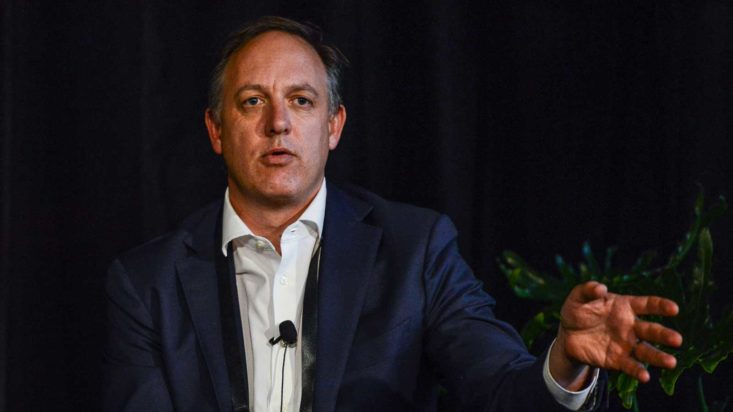Career risk and paper plates
Even in ethical and responsible investing, ‘there will always be winners and there will always be losers, not everything is going to win’.
They were some of the words of wisdom offered by Mike Murray, Head of Domestic Equities at Australian Ethical. What began as a boutique, niche ethical fund manager has grown into a responsible and sustainable investment juggernaut with over $5 billion in assets under management.
Speaking on the topic of the ‘green arbitrage’ Murray offered a unique insight from a manager that has spent a career focused on what is termed ‘stakeholder’ capitalism. That is investing into businesses they consider their impact on all stakeholders, not just shareholders.
Murray describes the ESG journey occurring in markets as ‘the big shift’ noting that it is not a question of if, but rather the ‘pace of change’. Imploring advisers to understand that they don’t need to agree with the shift, but simply appreciate that it is already well progressed.
During his presentation he highlighted the traditional lifecycle or experience of financial advisers, fund managers and institutions when it comes to ESG. It begins, he says, with skepticism, in this case concern that ESG considerations result in lower returns. It then evolves into compliance, either due to regulation or community expectations in the example of Rio Tinto, with the peak being leadership.
Having spent twenty years in the industry covering sustainable equity strategies before they were in vogue, Murray offered an insight into the changing nature of meetings with company management. Just a few years ago most boards saw ‘shareholder goals and environmental goals as unreconcilable’. He highlights common answer to ESG focused questions ranging from ‘we don’t really care’ to ‘I don’t know what you are talking about’ and ‘ask me the financial questions’.
That said, it is clear from the popularity of Australian Ethical and incredible growth trajectory that skepticism is long gone. Almost every manager in Australia and the world now has an ESG policy. But is it any different to what they are doing before? And are managers going far enough. These are the questions that Australian Ethical suggest asking prospective managers as advisers embark on this journey. Offering a caveat, Murray stresses that managers should be judged only on what they promise and what they deliver, not on what they should be doing.
Using two ‘sustainable’ or ‘ESG’ strategies as an example, highlights the risk facing many less committed more mainstream managers. That is the ‘career risk’ that comes with tracking error, or the difference between a fund and its index. Such is the concentration within the ASX that a strong position on ESG factor makes a lot of the top 50 companies difficult to hold, meaning managers need to be willing to stick their necks out and underperform if they truly wish to be different. This is simply too big a step for many.
‘Get out of binary ESG outperformance or underperformance assumptions’ says Murray, as he highlights that there are and will continue to be just as many winners and losers in higher ESG rated companies than anywhere else.
Murray and the growing investment team at Australian Ethical get excited about their flexibility they are offered to take ‘active risk away from the benchmark’ and into more impactful sectors. Ethics is deemed to be a non-negotiable part of the investment process, with staff dedicated solely to assessing companies on ESG factors, something he says as another barrier for the many mainstream players entering the sector.
Presenting a list of every holding in the Australian equity portfolio highlights the need to look beyond the top 20 companies in the ASX and have a willingness to invest into smaller companies is evident, something that requires patience. For example, a number of companies have been on Australian Ethical’s watchlist for nearly a decade before ever entering the portfolio.
Leaving the leading financial advisers in attendance with some hope, he concludes with the view that ‘more complexity, nuance and challenges (around ESG issues) are good news for financial advisers’ as it allows them to imprint their own value proposition to clients.










